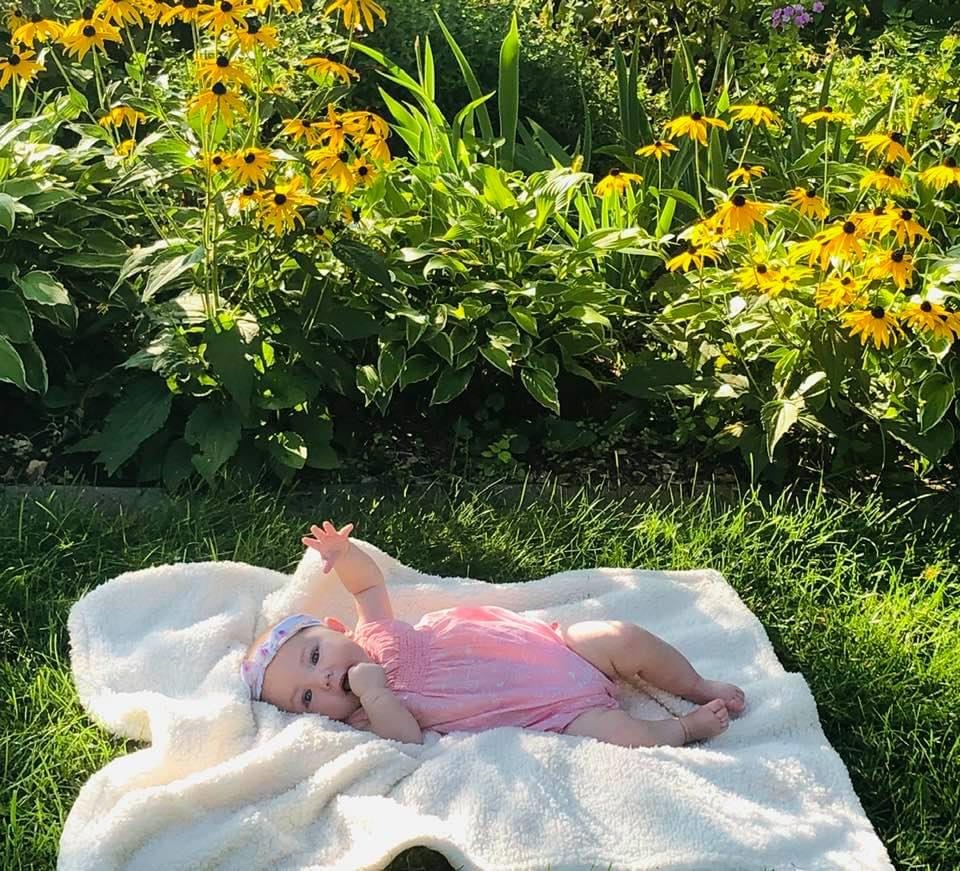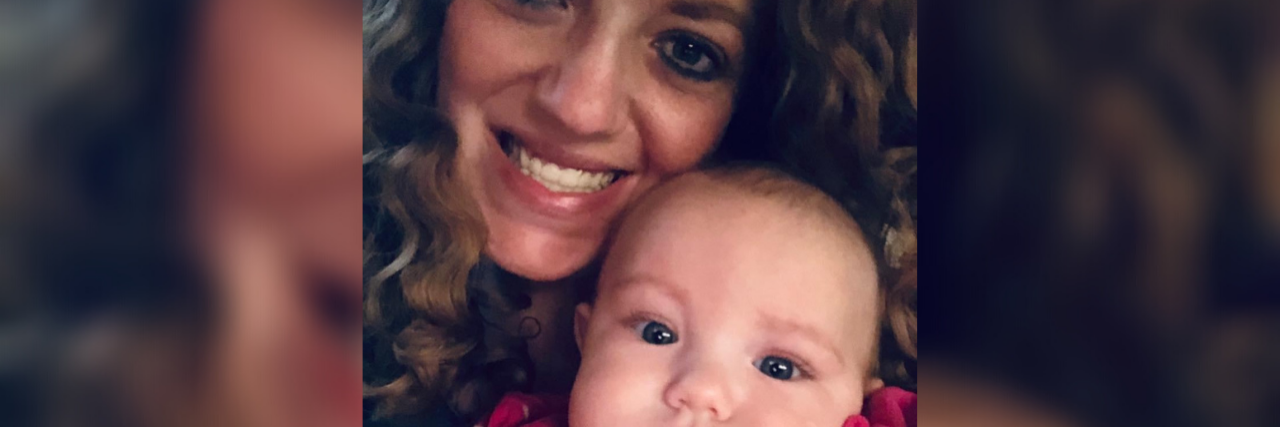April 23, 2020, at 2:14 p.m., my youngest daughter, Morgan, was born via emergency cesarean section at 37 weeks gestation. I had high blood pressure at the end of my pregnancy, which started to affect my vision and in turn also Morgan’s growth. She dropped to only the third percentile.
Eight days later, we were all home together after a NICU stay, and it should’ve been a happy time. Except I wasn’t happy, nor was I sad, mad; I wasn’t anything. I couldn’t feel a thing emotionally.
The only thing I could focus on was my increase in worry. I started to become obsessive over the thought that I could be ripped away from my children and they would grow up motherless due to my impending doom.
Each morning that I woke up I would have this huge weight on my shoulders, and it felt like I was waiting for my death to happen. I laid in bed motionless and in fear 24 hours per day, only getting up to take care of my baby.
My personal hygiene went to the wayside (and anyone who knows me knows that I pride myself on this), my boyfriend had to remind me to eat because I stopped doing that, my oldest son would come in and tell me he missed me, and all I could do was stare off into space. I was hearing what everyone was saying but I was stuck, and I didn’t know how to move forward.
Every time I would close my eyes, I was brought back to April 23rd, the exact moment my baby was laid on my chest. I kept picturing and hearing the nurses say, while grabbing my daughter from me moments later, that her breathing wasn’t quite right. And then, when I was wheeled up to my room, being told that she was going to be taken by ambulance to the children’s hospital 30 minutes away, and I couldn’t go with her. They said I could hold her for no more than a minute.
As a mom, it is ingrained in us that we are supposed to protect our babies, nurture them and bond with them. And I felt like I didn’t do any of those things for Morgan.
It wasn’t until almost two months later, my oldest daughter Lily woke me up in the middle of the night. She kept poking me, and I said to her: “Hunny, your daddy is right there. Let me wake him up for you so he can help you.” That was my wake-up call. That was the moment I knew I needed help, and that I wasn’t OK. I have three kids; I was so worried about dying that I wasn’t living in the moment or being there for anyone.
I called my OB-GYN and told her right away that I thought I was losing it. She said to me, “Lindsay, you’re not losing it. I’m pretty sure you have post-traumatic stress disorder (PTSD). This can happen when you have an emergency surgery that ends with your child in the NICU.”
And from that moment on, I felt relief. I wasn’t alone, this happened to other moms too, and nothing I did caused this. This was my brain’s natural reaction to the stress my body went through when I thought there was a chance I could lose my baby girl.
I’ve been receiving therapy and medication for several months now. I’m not 100% better; I still have moments, sometimes many. But I’m back to being a mom for my kids, and I’m living again.
Pregnancy and childbirth are often portrayed as this seemingly easy thing that occurs, and once the baby is born, everyone bounces back to “normal.” That doesn’t always happen.
I want every single mom to know that there is help for you out there if you’re struggling. You’re not alone, and it can and will get better.
My daughter is now four months old and is thriving.

Images via contributor

